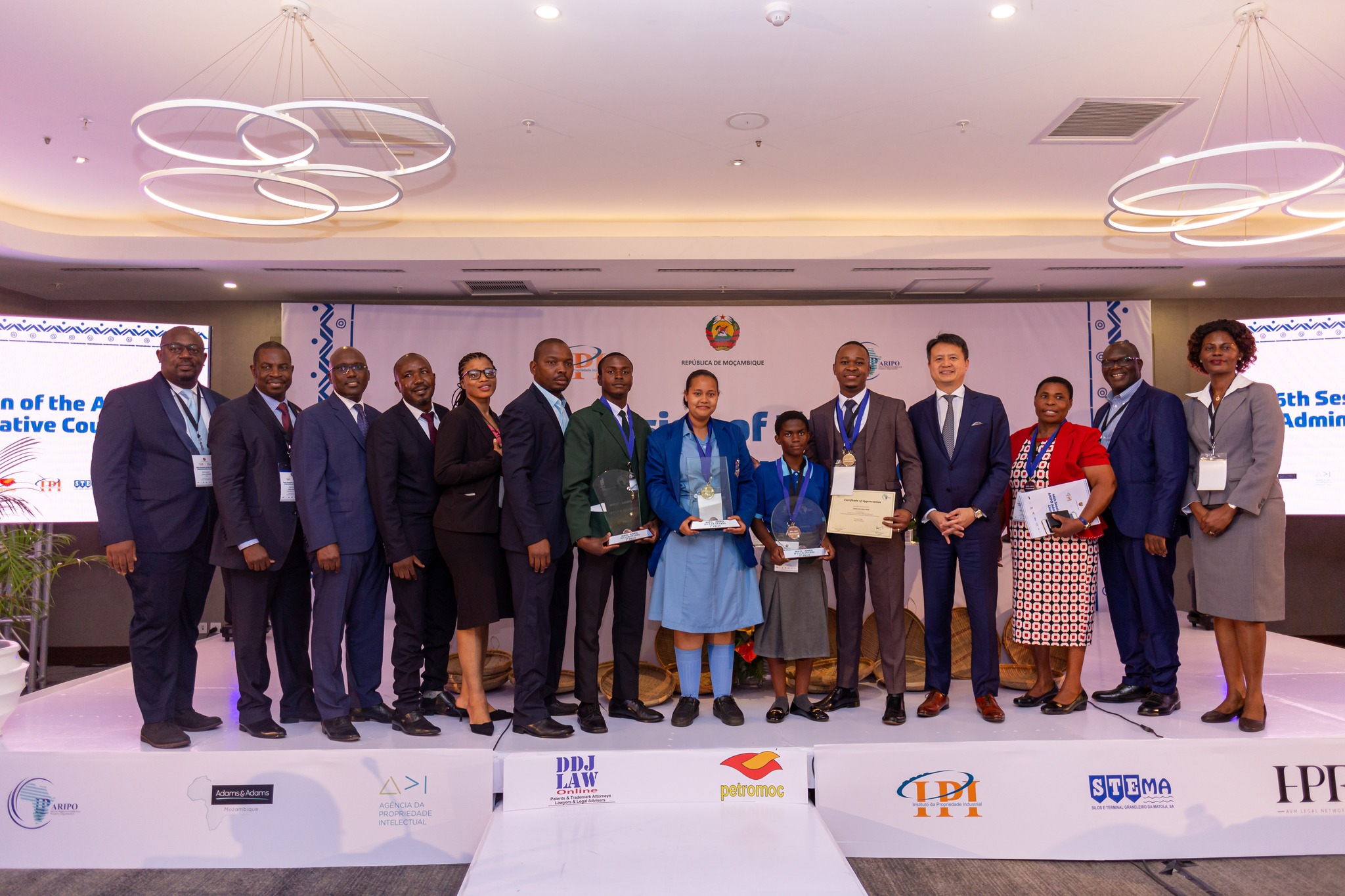The first historic Regional Intellectual Property (IP) School Club Awards ceremony jointly organized by the African Regional Intellectual Property Organization (ARIPO) and the World Intellectual Property Organization (WIPO) was held on 23 November 2022 in Maputo, Mozambique during the 46th Session of the Administrative Council of ARIPO.
The winning students received due recognition at the ceremony officiated by the ARIPO Director General (DG), Mr. Bemanya Twebaze, and the WIPO Director General, Mr. Daren Tang.
The 1st prize went to St. Joseph’s College, Botswana, represented by Latifa Ellaine Ludick; 2nd prize to Dzivaresekwa 1 High School, Zimbabwe, represented by Tony Kudzai Mazena & the 3rd prize to Bwaila Secondary School, Malawi represented by Emmie Botha.
Through the Korea Funds in Trust (FIT), WIPO partnered with ARIPO to implement the project, which was deployed in Botswana, Malawi, and Zimbabwe as pilot countries, with the view to eventually cover all the ARIPO Member States. The project seeks to educate and increase awareness among the youth about intellectual property (IP).
The objective of the project is to create IP awareness among school-going youth in the age range of 13 to 18, build respect for IP among the school-going youth from a young age, engage the students to disseminate further information about IP and the importance of respecting IP rights, and use school clubs as a sustainable means of creating IP awareness to other school-going youth.
The youths are undoubtedly the creative and innovative driving force of our economies. The failure to design programs for the youth makes it difficult for them to grasp what IP is all about and why it is essential to respect IP, yet they, too, are creators. This project creates a positive impact, which is the value we create and co-create together.
Most IP awareness initiatives are focused on institutions, IP generators and users of IP. It is seldom that awareness programs are created specifically for the young. The IP School Club Project is an initiative that is expected to mitigate the need for more IP information among the youth.

